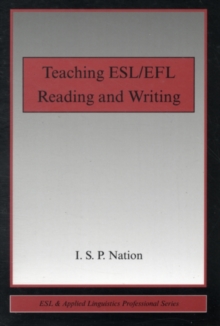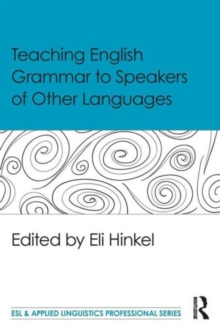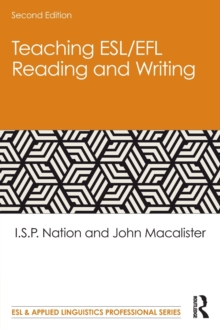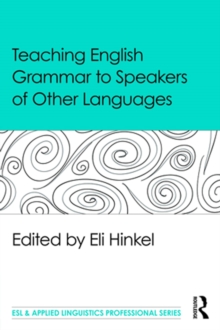
The English Language Teacher in Global Civil Society PDF
by Barbara M. Birch
Part of the ESL & Applied Linguistics Professional Series series
Description
How can English language teachers contribute to peace locally and globally?
English language teachers and learners are located in the global civil society -- an international network of civil organizations and NGOs related to human rights, the environment, and sustainable peace. English, with its special role as an international language, is a major tool for communication within this network.
On the local level, many teachers are interested in promoting reconciliation and sustainable peace, but often do not know how to do so. This book provides information, analysis, and techniques to help teachers around the world take action toward this goal. Balancing, in a readable and accessible way, the global and the local, core and periphery, cultural diffusion and resistance, theory and practice, pessimism and optimism, outsider and insider perspectives, the expert role and the apprentice role, and prescriptive and elicitive methods, it offers an alternative to literature about critical applied linguistics, globalization, and peace education that is simply too complex and wordy to spread easily from theoretician to the classroom teacher.
The English Teacher in Global Civil Society:
- Synthesizes threads from many fields and topics into a coherent and empowering argument for the activist role English language teachers can take to promote social change
- Draws on humanistic education, peace education, cross-cultural understanding, problem-posing, cooperative learning, and critical thinking methodologies to help English language teachers learn how to teach conflict resolution skills in their classrooms
- Covers issues in critical applied linguistics, approaches and methodologies in ESL/EFL, global and local curricular issues, and specific skill areas such reading, writing, and speaking
- Suggests a new goal for English language teachers: global citizenship
This engaging, informative, provocative, and highly readable book is a welcome resource for English language teacher trainers, pre-service teachers, practicing classroom teachers, and Peace Corps workers around the world.
Information
-
Download - Immediately Available
- Format:PDF
- Pages:240 pages
- Publisher:Taylor and Francis
- Publication Date:28/05/2009
- Category:
- ISBN:9780203878040
Information
-
Download - Immediately Available
- Format:PDF
- Pages:240 pages
- Publisher:Taylor and Francis
- Publication Date:28/05/2009
- Category:
- ISBN:9780203878040










